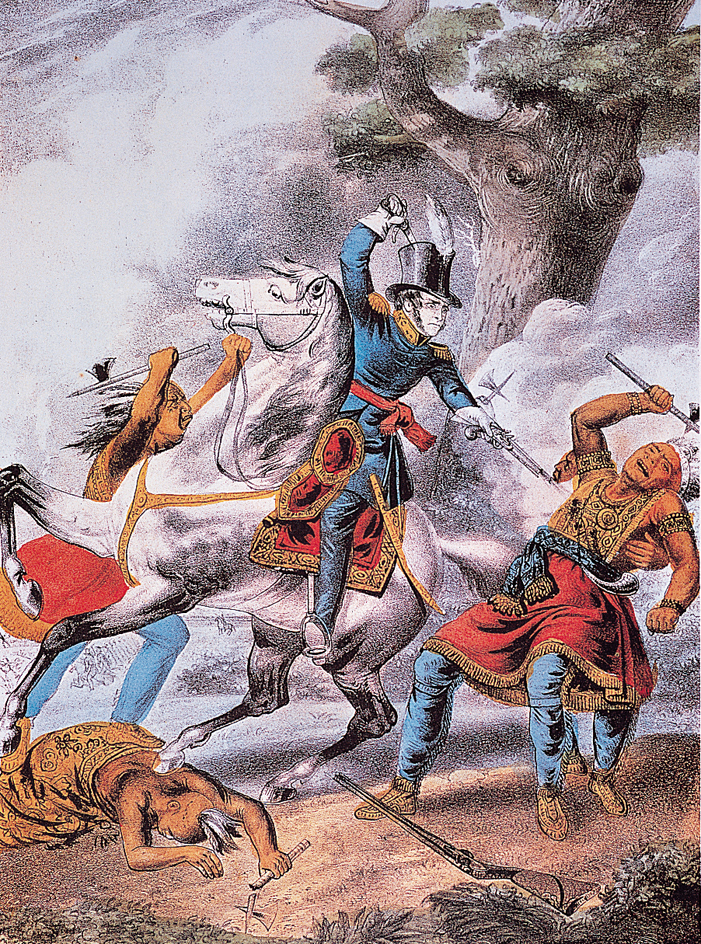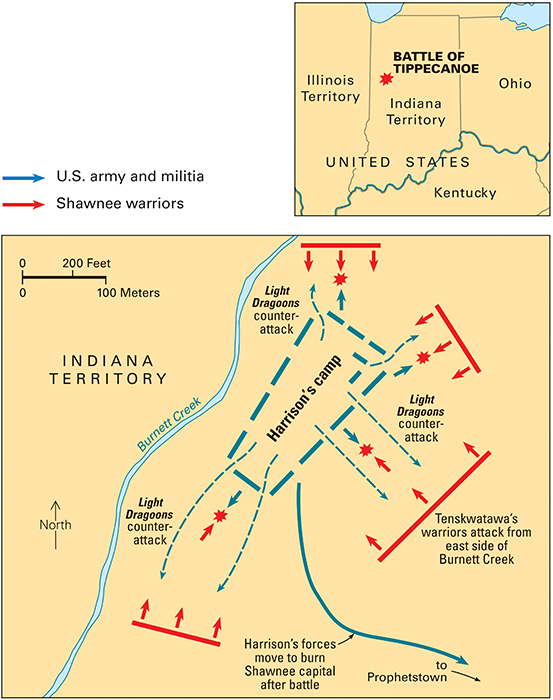Tecumseh, << tih KUHM suh >> (1768?-1813) was an outstanding leader of the eastern Native American tribes in the late 1700’s and early 1800’s. He worked to unite all the tribes into a single alliance that would defend Native American lands against invasion by white people. Tecumseh means shooting star or meteor.

Tecumseh, the son of a Shawnee war chief, is believed to have been born at Old Piqua, a Shawnee village on the Mad River, northeast of present-day Dayton, Ohio. His father and two brothers were killed in battles with the American colonists.
White settlers were rapidly taking Native American lands, and Tecumseh and his brother Tenskwatawa began a crusade to keep the lands for native people. Tenskwatawa, known as the Shawnee Prophet, led a religious revival. Tecumseh, a strong warrior and gifted orator, led in politics and war. He traveled frequently from his home in Ohio to visit other tribes east of the Mississippi River. The two men did much to restore the Native American culture of the Ohio River Valley region.
Tecumseh condemned a treaty that William Henry Harrison, then governor of the Indiana Territory, made with Native Americans. His action led to the Battle of Tippecanoe in November 1811. Tecumseh joined the British to fight the Americans in the War of 1812 and commanded the native allies. He was killed on Oct. 5, 1813, leading his forces in Canada.
See also Indian wars (Conflicts in the Midwest); War of 1812 (Campaigns of 1813)

